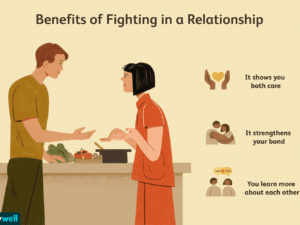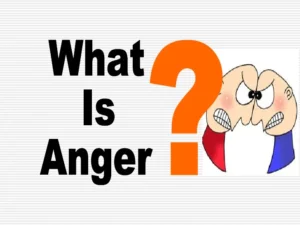Contents
- 1 What Is Anger?
- 2 Benefits Of Controlling Your Anger In A Relationship
- 3 How To Control Anger In A Relationship?
- 4 Steps For Controlling Your Anger Instantly
- 5 Dealing With An Angry Partner Or Friend
- 6 Ways To Avoid Arguments In A Relationship
- 7 10 Ways To Make Yourself Feel Better When Angry
- 8 Professional Help To Control Anger In A Relationship
- 9 Therapy For Anger Management
- 10 Conclusion
What Is Anger?
Anger is a feeling that everyone experiences from time to time. It’s usually a result of feeling frustrated, annoyed or threatened. There can be many different causes of anger, such as feeling like you’re not being heard, being treated unfairly, or feeling powerless. This article will explore how to control anger in a relationship by examining the underlying causes for this emotion and how it can be mitigated through a strategic approach.
Anger can manifest in different ways, such as yelling, screaming, or cursing. It can also lead to physical aggression, such as hitting someone or breaking something.
How anger is one of the most destructive emotions that we experience. Anger can lead to verbal and physical abuse, taking your frustrations out on your loved ones, and even destroying relationships. It is inevitable that you will experience rage from time to time, but there are ways to control it so you don’t have a meltdown or regretful decision later down the line.
Benefits Of Controlling Your Anger In A Relationship

Getting angry in a relationship can cause a lot of problems and ruin an otherwise good relationship. When you’re controlling your anger in a relationship, it can benefit both you and your partner or friend in the following ways. You will-
- Be able to focus on what’s important rather than getting sidetracked by anger
- Feel more in control of yourself and your feelings.
- Get along better with your partner or friend, which will strengthen your relationship
When you’re controlling your anger in a relationship, one of the best things you can do is let go of any expectations that you might have. It’s important to try and be patient with your partner or friend, even if they aren’t acting in a way that you would want them to.
It’s important to give yourself time after an argument or disagreement before making up with someone and deciding never to fight again. If you’re too quick to make up and forget how angry you felt, then that anger might come back and cause problems in the future.
The best thing you can do after getting angry with someone is to think about what you really want to achieve by getting angry, and then take some time to cool down. Remember that anger doesn’t last forever, it’s just a feeling that will pass eventually.
How To Control Anger In A Relationship?
Controlling your anger in a relationship can be difficult, but it’s definitely worth the effort. Here are some things that can help:
Avoid the Impulse to Cut Off

When you are in a heated argument with your partner, it’s easy to feel like you want to cut them off. But this is one of the worst things you can do! Instead, try to breathe deeply and allow yourself time to cool off before carrying on the conversation. Once you are both calm, try talking about the issue at hand. Avoiding your partner during an argument can cause great discomfort and even lead to depression.
Focus on Managing Yourself
Anger can be directed to other people, yourself, or the world in general. When you are angry at yourself, you may want to punish or hurt yourself by being self-critical or being too hard on yourself. It is more detrimental to punish oneself than anyone else because one will feel worse about themselves.
If someone is not knowledgeable of what they are doing wrong when they are angry, it may be best for them to try not to act on their anger in order to make sure they don’t cause harm or regretful decisions.
Look Past the Issues
One way to control anger in a relationship is to look past the issues and focus on what you have in common with your partner. It is easy to feel like you are all alone when dealing with problems, but couples who act together will get through any obstacle much easier.
Envision The Future of Your Relationship

When you start thinking about how great your relationship can be once certain issues are resolved, it can keep you optimistic and determined to solve the issue. This also helps you to avoid fights that are not worth having because you know that they do not help your relationship in the long run.
If all else fails, be open about how angry you feel with your partner or friend in a non-threatening way. Assure them that you won’t get physical and explain how they can help you stay calm.
No matter what the issue is, try to keep your relationship in mind so you can manage your anger effectively and not ruin it over something relatively trivial. By recognizing the cause of your anger, talking about it with your partner or friend, taking time to cool off, looking past disagreements, envisioning the future of your relationship, and being open about how you are feeling, anger will be much easier to control.
Steps For Controlling Your Anger Instantly
These are some steps to control anger instantly-
- Recognize the signs that you’re getting angry and take some deep breaths to calm down.
- Talk about how you’re feeling with your partner in a calm, non-threatening way.
- If things are still heating up, take a break to allow yourself to cool off before continuing the conversation
- Avoid reacting when you’re in a heated argument with your partner
- Say how you feel in a calm, non-threatening way
- Take some time to cool before continuing the conversation
- Talk about what’s wrong and work towards a solution together without being physical
Dealing With An Angry Partner Or Friend

If your partner or friend becomes angry and you feel like you’re about to get hit, don’t try and fight back. Instead:
- Step away from your partner or friend so that they can calm down without having to look at anyone else.
- Don’t say anything unless your partner or friend is physically attacking you, in which case you should tell them firmly not to do so.
- Avoid provoking your partner or friend further if they seem to be out of control.
- Stay calm and don’t raise your voice or yell back.
- If your partner or friend follows you, walk to where others can see you together so that you’re safe from harm, including police officers if necessary.
- Accept responsibility for the impact of what happened later on but continue to focus on calming your partner or friend down in the moment.
- Let your partner or friend know that you’re sorry they got so mad but that what’s done is done and shouldn’t be discussed further until both of you can remain calm.
- Don’t bring up the argument again because it will only make your partner or friend angrier.
Ways To Avoid Arguments In A Relationship
Here are 10 ways to avoid arguments and fights:

1. Communicate with your partner how you’re feeling and what’s bothering you.
2. Don’t make assumptions about why the other person is doing something and ask them directly.
3. If you think you’re about to get into an argument, walk away and come back when you’ve calmed down.
4. Recognize that sometimes the other person isn’t doing anything wrong and it’s just a misunderstanding or miscommunication.
5. Stay focused on solving the problem at hand rather than letting old grievances affect your communication.
6. Avoid trying to make the other person change and focus on changing yourself instead (for example, if you want your partner to help more around the house, try asking them to do something specific rather than accusing them of not helping).
7. Learn to accept that there will be times when it’s hard for your partner or friend to do something and it’s not necessarily because they’re trying to annoy you (for example, if your friend hates giving speeches or your partner is sick).
8. Don’t spend too much time focusing on the things that will make you angry in the future before they’ve even happened (for example, thinking about how mad you’ll be when your partner doesn’t help out with the chores and then assuming that it will happen).
9. Try to think of things from your partner or friend’s perspective and be empathetic and understanding (for example, if your partner claims they were late because of traffic on their way home from work, ask them how long it took and look up the time it takes on Google Maps to see if the claim is legitimate).
10. Try to avoid fighting with your partner or friend when you’re tired, hungry, or stressed (for example, at the end of a long workday and right before dinner).
Ways To Prevent Arguing In the Future
You can also try to prevent future arguments by:
- Make your expectations clear so that you don’t get angry when your partner or friend doesn’t meet them.
- Discuss ways in which you could improve the situation if it’s causing problems for either of you, rather than just insisting that your partner or friend change to suit you.
- Try to maintain an open dialogue with your partner or friend so that you can both express your feelings and concerns.
- Ask for your partner’s or friend’s opinions, even if they’re different from what you’d expect them to say.
- Telling your partner or friend how their anger makes you feel so they know how it affects you and hopefully work towards not making you feel that way.
- Take responsibility for your own actions, even if you feel like they’re being provoked by your partner or friend.
These are all things that can help both of you to get along better and prevent arguments from happening in the future.
If these approaches still aren’t working after trying them several times, it’s important to get help from a professional.
10 Ways To Make Yourself Feel Better When Angry

When you feel angry, it’s important to find a way of releasing the anger that doesn’t involve hurting someone. Here are ten ways you can calm yourself down:
1. Take some deep breaths and focus on your breathing.
2. Scream into a pillow or let out some loud noises to allow the anger to escape from you in another way.
3. Punch a punching bag or something similar that can absorb the energy of your anger without hurting anyone.
4. Call a friend or family member and talk about how you’re feeling.
5. Write a long, angry letter and then tear it up without sending it to anyone.
6. Go for a walk or run to burn off some of the excess energy that’s inside you from being angry.
7. Listen to music or sing your favorite songs to help distract yourself from the anger you’re feeling towards someone else.
8. Draw a picture of what you’re angry about and then tear it up or throw the paper away.
9. Watch a funny movie or television show to help distract yourself from your anger.
10. Go for a drive to give yourself time to recover from the anger you feel before going back home.
Professional Help To Control Anger In A Relationship
There are many resources available for people who want to control their anger in a relationship. One of the first resources you can use is to find an anger management therapist. Another resource is finding a meditation group or class. If you can’t find anything like that, try keeping a journal of your thoughts or trying different forms of exercise to release the anger inside you.
If you’re still having trouble controlling your anger, you can talk to a counselor about what caused your anger in the first place. You might find that there’s something you want or don’t want from your partner or friend that isn’t being communicated correctly. Every person is different and has different ways of responding to things in their lives. If you want to control your anger and help yourself in a relationship, it’s up to you to make the change.
Therapy For Anger Management
Anger management therapy is a form of psychotherapy that is used to help people deal with their anger. It can be used to help people who have problems with anger control, as well as those who have difficulty expressing their anger in a healthy way. Anger management therapy is not the same as anger counseling, but it may be part of an anger management program.
A person who needs to go through an anger management program might have issues with anger that affect his or her personal life, work-life, or relationships.
He or she might physically harm others, damage property, or threaten violence. Many times, people with anger issues, such as those who are experiencing PTSD or other mental illnesses, will benefit from therapy.
People go through anger management therapy in a variety of ways, depending on the program and the therapist. The length of time for an individual to complete their treatment can vary from several weeks to several months. Most programs include multiple components; some might use only one method.
Anger management therapy includes:
- Cognitive Behavioral Therapy (CBT)
- Mindfulness-Based Stress Reduction (MBSR)- This is a Buddhist meditation technique, most often used in conjunction with CBT. It involves focusing on breathing and becoming fully aware of feelings and thoughts without judgment so that the person can release negative emotions.
- Dialectical Behavioral Therapy (DBT)- This is a form of CBT that helps people learn to control emotional responses and reactions, instead of ignoring them or suppressing them. It also includes training in mindfulness meditation.
- Interpersonal Psychotherapy (IPT)- This approach focuses on improving communication and developing healthy relationships. This is often used in conjunction with CBT and DBT therapies.
- Family Therapy- This approach helps people learn to communicate and resolve conflict within their families. It can be helpful for anger management because it teaches valuable social skills, such as how to give constructive criticism and support each other during difficult times.
Conclusion
Anger is a natural part of life, but it can lead to problems in relationships if not managed correctly. The above article discusses the importance of understanding your partner’s anger and how you react to their anger so that both parties are more likely to get along better without resorting to violence or verbal abuse. If these approaches still don’t work after trying them several times, then professional help may be needed from an anger management therapist or other mental health professionals who have experience helping people cope with this issue.
For more information, please contact MantraCare. Relationships are an essential part of human life. It is the connection between people, and it helps us to form social bonds, understand and empathize with others. If you have any queries regarding Online Relationship Counseling experienced therapists at MantraCare can help: Book a trial therapy session



